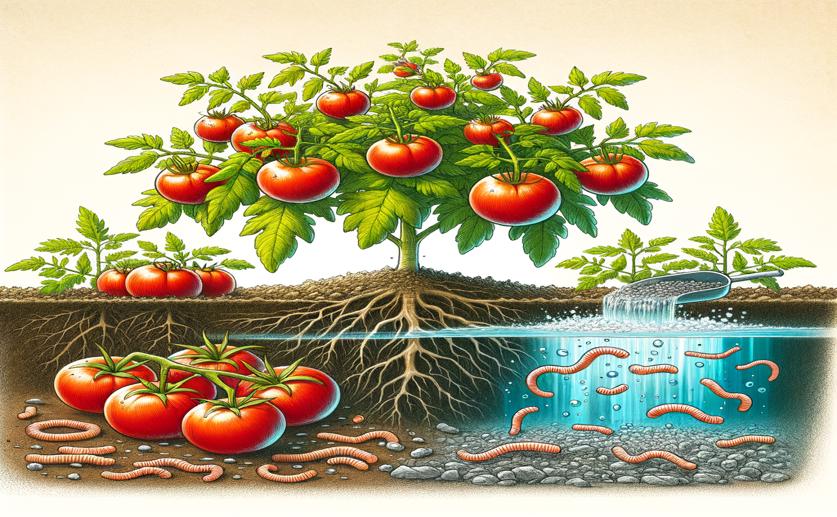
Using Worms to Clean Wastewater Helps Tomato Growth and Reduces Metal Absorption
Jim Crocker
16th July, 2024

Image Source: Natural Science News, 2024
Key Findings
- The study by the University of Agriculture Peshawar found that using vermicompost in soil significantly reduced heavy metal concentrations in tomato plants irrigated with wastewater
- Tomatoes grown in soil with 25% vermicompost had the lowest levels of harmful metals like cadmium, chromium, copper, and lead
- Vermicompost not only improved plant growth and yield but also made the soil safer by reducing the bioavailability of heavy metals
AgricultureEnvironmentPlant Science
References
Main Study
1) Vermi-remediation impacts on growth and metals bioaccumulation in tomato irrigated with wastewater.
Published 13th July, 2024
https://doi.org/10.1016/j.chemosphere.2024.142848
Related Studies
2) Accumulation of heavy metals in edible parts of vegetables irrigated with waste water and their daily intake to adults and children, District Mardan, Pakistan.
3) Biochar increased photosynthetic and accessory pigments in tomato (Solanum lycopersicum L.) plants by reducing cadmium concentration under various irrigation waters.
4) Bioremediation and detoxification of industrial wastes by earthworms: Vermicompost as powerful crop nutrient in sustainable agriculture.
5) Heavy metal pollution in the environment and their toxicological effects on humans.



 3rd July, 2024 | Jenn Hoskins
3rd July, 2024 | Jenn Hoskins